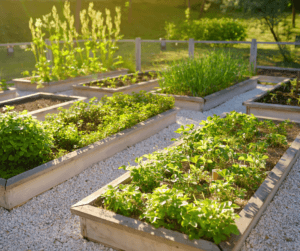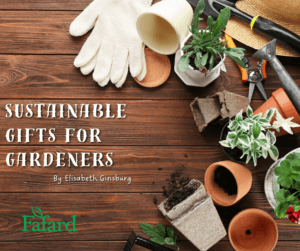
The holiday season is the best and worst of times for gardeners’ friends and relatives. The list of potential gifts is large, but choosing presents that the gardener actually wants or needs can be daunting. One way to get a handle on the situation is to think about sustainability. Most people who dig in the dirt—whether that “dirt” is garden beds, window boxes or indoor containers—are looking for sustainability. Gardening is about working with the environment, not against it, so sustainable gifts are a good choice all the way around.
Small Surprises
Some people call these neat little gifts “stocking stuffers”, but even if you have no stockings, they are thoughtful remembrances. Garden twine comes in handy in so many situations that it is practically indispensable. Classicists have long turned to Nutscene Green Twist, which is made of biodegradable jute in a green shade that blends with leaves and stems, but any twine made of jute or hemp will come in handy. Another small delight is lip balm, preferably made from beeswax. There is nothing like it when you are putting in those last bulbs on cold, dark, December afternoons. If you know your friend’s or relation’s preferences in hand lotion, a small jar or tube of that will take care of chapped hands as well.
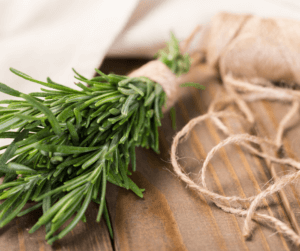
Protecting the Protector
If you have a rough idea of the gardener’s hand size, a good, sturdy pair of cotton gloves can come in handy. Likewise with warm socks in natural fabrics. If you are privy to the individual’s likes, dislikes, and existing closet contents, a raffia or cotton garden hat or visor, may be a good investment. Look for a generous brim and adjustable size. Some hats are also foldable or packable, making them an especially good gift.
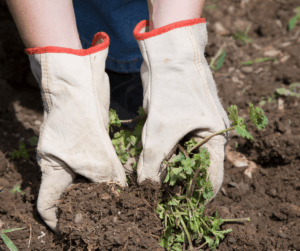
Tools
Good tools are like gold, and some people are picky about them. It pays to know what tools your friend or relative already has in the garden basket. A garden knife, sometimes known as a Japanese hori knife, functions as a knife, trowel, and weeder all in one. For sustainability, invest in a knife with a wooden handle, stainless steel blade and a convenient leather sheath that can attach to a belt.
One of the most indispensable weapons in my garden arsenal is an old-fashioned digging fork, which is smaller than a pitchfork, and about the same size as the average garden spade. A sturdy wood and stainless fork does a multitude of heavy tasks, including mulching, soil loosening, and turning compost, and generally lasts for years. If you are planting bulbs in a congested garden area, a fork will get the earth loosened with minimal disruption to neighboring plants or older bulbs that you may have forgotten about. For new gardeners, a matching fork and spade set, is an exceptionally thoughtful gift.
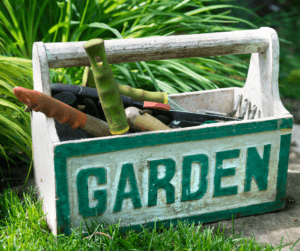
Building Better Soil
Organic compost is wonderful for adding nutrients to soil, lightening heavy clay, or helping sandy soils retain moisture. Plants love it. Many vendors sell small, ceramic countertop units that will hold kitchen scraps until they can be deposited in an outdoor compost pile or composter. These are especially good for people in cold weather climates who may want to skip a trip to the compost pile when the snow is piled high.
A big bag of organic mulch may not make much of an impression under a Christmas tree, but a compact brick of coir-based potting mix, seed starting mix or compost makes a neater package that can be conveniently stored until it is needed. All the gardener has to do is add water, and the brick’s contents expand into a usable medium. Gardeners who do indoor seed-starting may appreciate a pack or two of coir seed-starting disks, a sustainable replacement for peat-based disks.
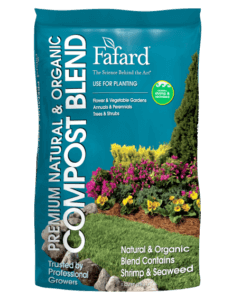
Hard to Buy For Gardeners
Suppose your gardening friend or relative already has an ample supply of tools, hats and soil amendments? What then? Most horticulture-minded people have a favorite nursery or garden center. An online gift card is thoughtful and sustainable and allows your loved one to choose something suitable. A subscription to the online edition of a gardening magazine (or the print edition for those who prefer it), provides a year’s worth of inspiration, usually at a relatively low price. Membership in non-profits like the American Horticultural Society, Great Britain’s Royal Horticultural Society, or the Southern Garden History Society provide all kinds of benefits, in addition to publications, conferences and, sometimes, discounts at botanical institutions.
Classic garden books are another sure winner. The internet is full of features on how to plant and design gardens. Good garden literature delves into the “why” of doing so. Classic works by authors like Russell Page, Beth Chatto, Christopher Lloyd or Henry Mitchell never go out of style. Page Dickey has written about aging—and making gardens—gracefully. Stephen Orr’s The New American Herbal is a must for herb lovers, gardeners and cooks.
For something really personal, try giving your time to help with heavy, but necessary garden chores like spreading mulch, digging a new bed, or bringing large container plants inside for the winter. You will be investing in both gardens and friendship.
